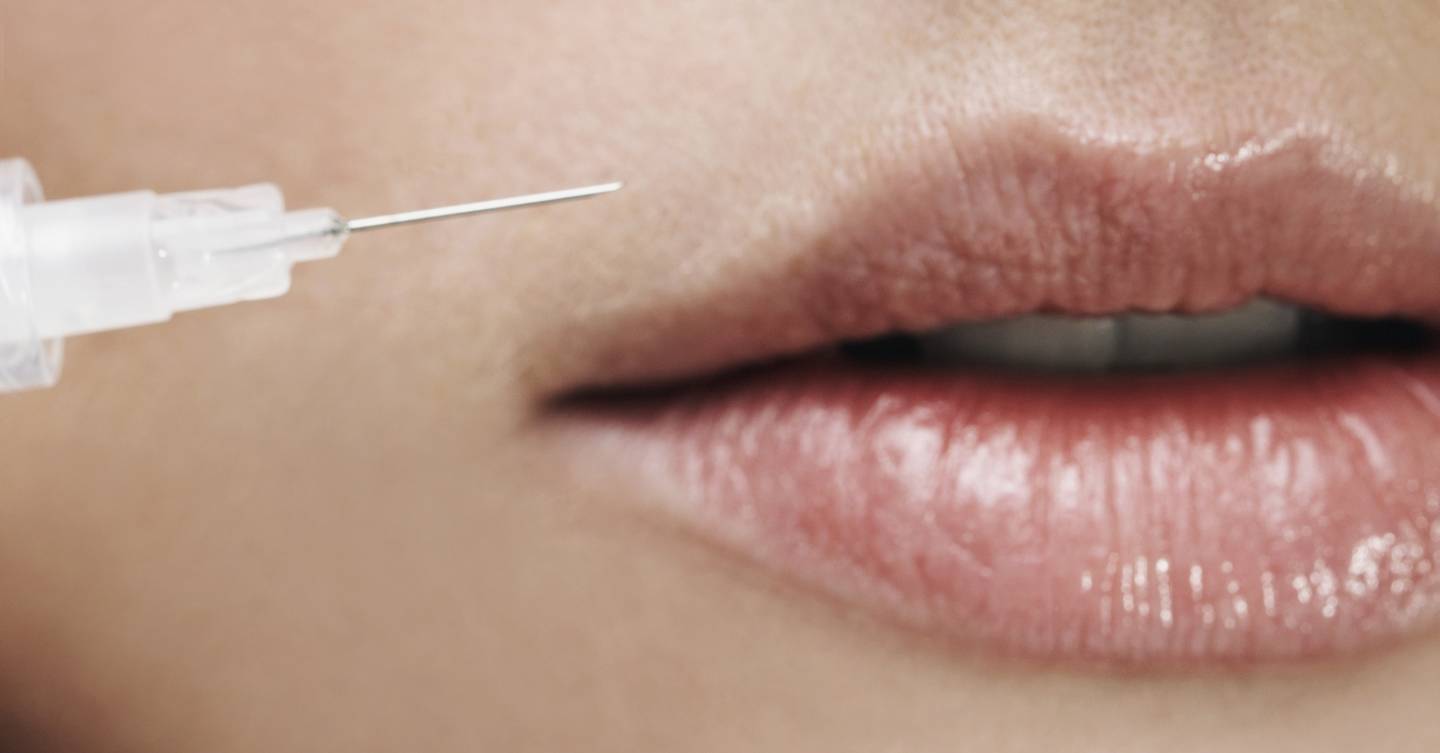“One of my patients has started wearing a face mask in public, not for protection against the virus, but to cover her ‘vanishing lips’,” says Dr Tijion Esho, renowned cosmetic doctor and clinical aesthetic expert. “Another patient claimed she was ‘self isolating‘ in her room, but it was so her husband couldn’t see her old face reemerging.”
These may more extreme cases, but it’s not hard to understand how many have become reliant upon their regular injectable tweakments such as dermal fillers and Botox. In fact, these non-surgical treatments have become commonplace within beauty regimes across the country, with people relying on them to transform the shape of their noses, plump up their lips, smooth their skin and even reshape their jawlines.
But after eight weeks of lockdown, during which time beauty salons and cosmetic clinics have been closed, no one has been able to have their usual top-up treatments. “Fillers and Botox are non-permanent,” explains Dr Esho, “and the length of time the treatments last will depend on the type of product used, the amount and the area that was injected. The lips and under eyes usually last the least amount of time, and Botox will only last a matter of months. If a patient was due for a maintenance treatment just before lockdown hit, their treatments will be wearing off completely by now.”
It’s not so bad if you opt for the occasional sprinkling of ‘baby Botox‘ or a minimal amount of filler to subtly plump up your lips, but it’s a different story for anyone who has the more appearance-altering treatments. “For those who have had a lot of work done, there will be significant changes in their appearance since the beginning of lockdown as they will need regular and consistent maintenance,” says Dr Esho.
It’s hardly surprising, therefore, that people are desperate to get back into cosmetic clinics to resume their injectable regime. “I’ve had a number of requests from clients to come to their homes and perform treatments on the lowdown,” reveals Dr Esho. “I even had a very well-known person offer to pay my fine if I came to treat her at her house and breach lockdown. Needless to say the answer was no – it’s not only unethical, it’s unsafe and it would risk lives.”
There’s hope that clinics will be able to reopen from July, but this could change at any moment. “Current government advice states latest will be 4th of July, but there ongoing discussions with key bodies in our industry and the government to review and see if this can be sooner with the correct safety procedures. At the end of the day patient safety and preventing a second wave comes first. If we have to remain closed in order to prevent the spread of the virus, then we will remain closed.”
Whereas Dr Esho’s UK-based clinics remain shut, his Dubai clinic has recently reopened, giving us a glimpse into what post-lockdown life could look like. “The pre-assessment of patients and skincare consultations are all now done via Skype or Zoom, reducing the number of in-clinic appointments as well as making any trips to the clinic much more streamlined. At the moment, I’m doing about 10 – 15 Zoom consultations per day. I treat skin conditions such as acne with topical products that are shipped from my clinics direct to the patients door, and I continue to review their condition remotely. For those who do need in-person interventions when lockdown lifts, we’re following a Covid secure process where safety is paramount.”
“First of all, only one patient can be seen in the clinic at a time to allow social distancing where possible,” he explains. “Upon arrival, patients have their temperature taken to ensure they do not have a fever. They are then given shoe covers, gloves and masks where appropriate and head straight into the treatment room. After each treatment, the rooms are cleaned by a process known as anti-viral fogging and we have viral air filtration systems throughout the clinics.”
“The reception desks now have plastic shields and all staff wear full PPE. We screen every member of staff daily for symptoms and have them tested if necessary. In many ways, our clinics are some of the safest places you can be, even safer than your own home.” Can we move in, please?
